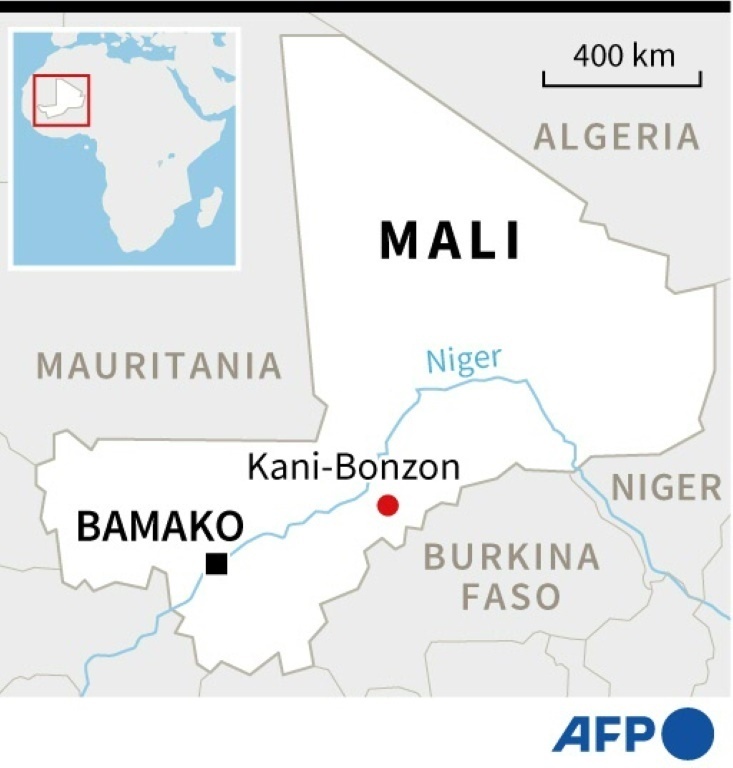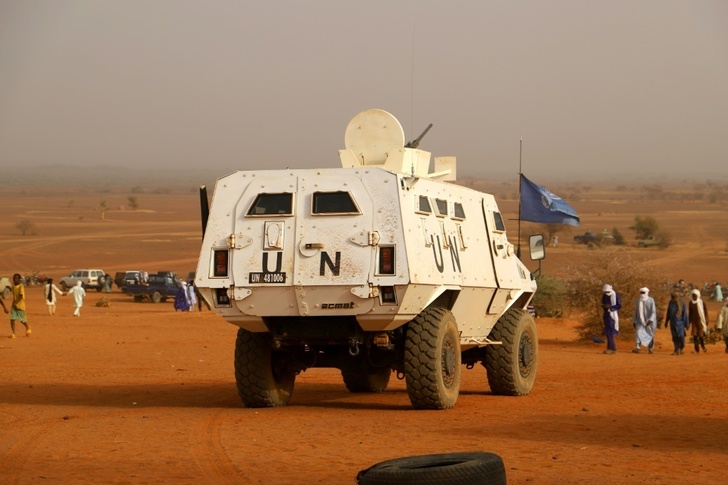A jihadist attack on a village in central Mali has killed 13 civilians, local officials told AFP on Friday.
A local politician said "terrorists" killed 13 civilians and burned homes in the village of Kani-Bonzon on Thursday, adding that the death toll could be as high as 20 and residents were afraid of returning home.
Jihadists "killed more than 13 civilians", torched buildings and took away three people, according to another local politician speaking on condition of anonymity for security reasons.
"We ask the government and MINUSMA to come and help us," he said, referring to a UN peacekeeping mission that has supported the West African nation in the long-running fight against jihadist rebels.
Mali has been battling a severe security and political crisis since jihadist and separatist insurgencies broke out in the north of the country in 2012.
Jihadists affiliated with Al-Qaeda and the Islamic State group have escalated their operations into central Mali and neighbouring Niger and Burkina Faso.
Across the region, thousands of civilians, police and troops have died, and more than two million have fled their homes.
In northern Burkina Faso, at least 70 soldiers and around a dozen civilian auxiliaries have died in less than a week in attacks blamed on jihadists.

Three Senegalese UN peacekeepers were killed there earlier this week after the explosion of an improvised explosive device, a weapon often used by the rebels.
- Fierce fighting -
The Katiba Macina's emergence has created or exacerbated tensions between communities over access to resources, with violence breaking out along ethnic lines.
So-called self-defence groups and banditry have also plagued central Mali, adding to the instability caused by the insurgents.
The military junta that has ruled Mali since a 2020 coup claims it is pushing back the jihadists.
But a UN report published in January said armed groups in the centre of the country were continuing to exploit tensions between communities, extend their influence and gain new recruits.
The junta launched a major operation in the centre in late 2021 as it started to loosen ties with France -- its historic ally and the former colonial power -- and drew closer to Russia.
Russian personnel which Bamako describes as military instructors have participated in the offensive.
But Western powers including France and the United States say they are mercenaries from the private Russian military company Wagner, accused of rights abuses in conflict zones in Africa and the Middle East.
The UN report also mentioned on several occasions "foreign security forces" committing abuses in central Mali, in a reference to the junta's new Russian allies.
In northeastern Mali, the Islamic State in the Greater Sahara (ISGS) group has for months been engaged in fierce fighting with other armed groups and rivals affiliated with Al-Qaeda.
Civilians have frequently been caught up in the violence in the vast and arid region.
kt-sd-lal/imm/ri
© Agence France-Presse
Your content is great. However, if any of the content contained herein violates any rights of yours, including those of copyright, please contact us immediately by e-mail at media[@]kissrpr.com.
Source: Story.KISSPR.com

